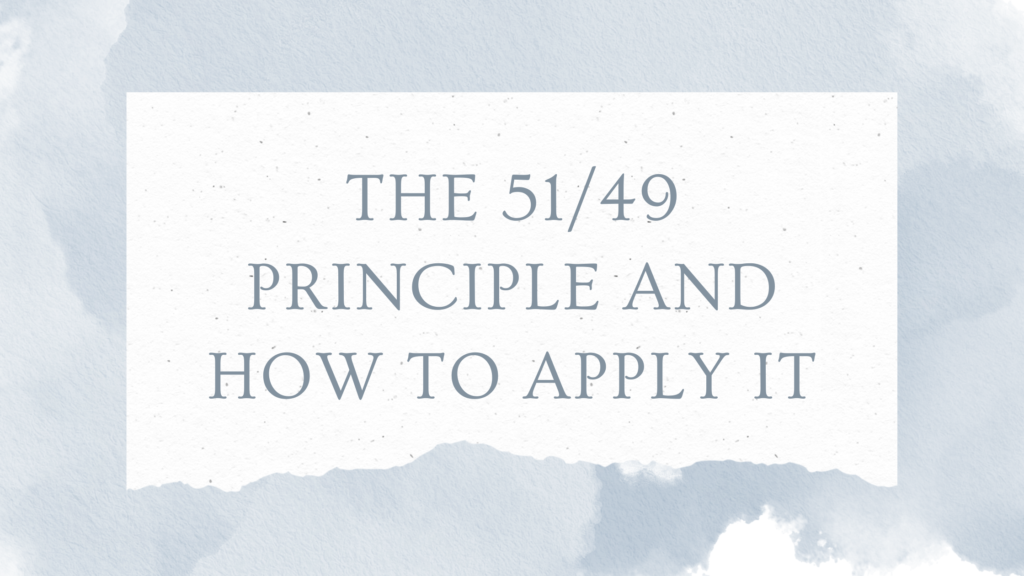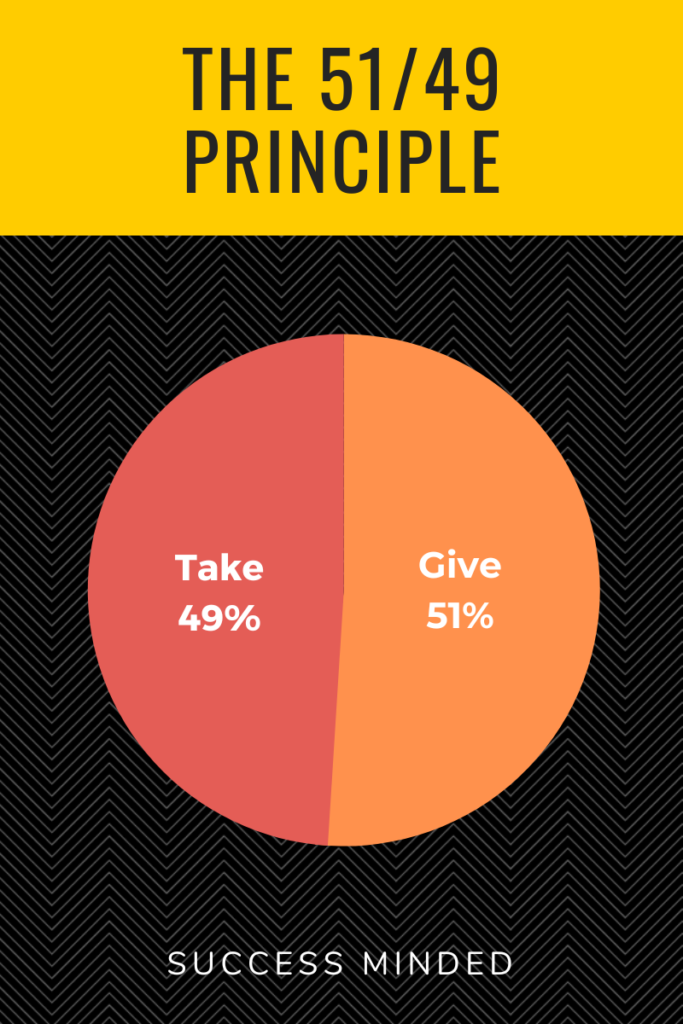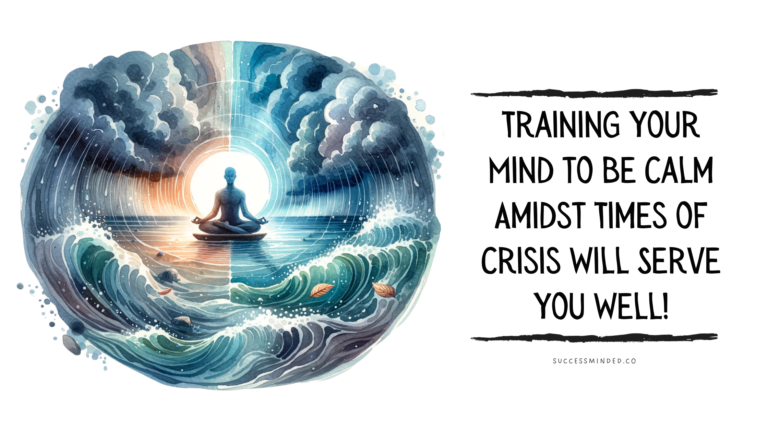Do you feel burnt out? Or, maybe unfulfilled? Despite having a successful career or plenty of material possessions? If you do, it might be time to consider the 51/49 principle.
This concept, popularized by entrepreneur Gary Vaynerchuk (popularly known as Gary Vee or Gary V.), advocates for giving 51% of the time and receiving 49% of the time in all relationships, whether they be personal or professional.
Sounds counterintuitive, right?
But stick with me here since the benefits of following this principle are numerous and can help you build stronger relationships, increase your personal and professional success, and feel more fulfilled.
In this article, we’ll explore what the 51/49 principle is, how it can be applied in your life, and the benefits of following this principle. So get ready to turn the tables on the traditional “take, take, take” mentality and start giving more than you receive.

What is the 51/49 Principle
Gary Vaynerchuk came up with the 51/49 principle in his book “Thank You Economy.” It advocates for giving 51% of the time and receiving 49% of the time in all relationships, whether they be personal or professional.
This principle is based on the idea of reciprocity, as well as the mental and physiological benefits of giving to others. The idea is that by consistently giving more than we take, we position ourselves to reap the benefits of others’ reciprocity in the future.
Additionally, research has also shown that giving to others can have a positive impact on our mental health and well-being.
The principle can be applied in a variety of ways, including prioritizing our time and energy, maintaining a healthy work-life balance, finding balance in our relationships and social interactions, and making financial decisions that prioritize giving over taking.
Vaynerchuk believes that implementing the 51/49 principle is key to leaving a legacy and making an impact on others. He practices what he preaches, regularly responding to fans and providing valuable content for free.
The Benefits of the 51/49 Principle
While it may seem counterintuitive to prioritize giving over receiving, the benefits of following this principle are numerous and can help us build stronger relationships, increase our personal and professional success, and feel more fulfilled in life. Here are a few benefits of following the 51/49 principle:
- Stronger relationships: By consistently giving more than we take in our interactions with others, we can build stronger, more meaningful relationships. People are more likely to want to help us out and be there for us when we’re in need if we have consistently given them our time, attention, and support.
- Increased personal and professional success: The 51/49 principle is all about adding value to others, and this can have a ripple effect on our own success. By consistently striving to give more than we take, we position ourselves to reap the benefits of others’ reciprocity and can increase our personal and professional success as a result.
- Improved mental and physical well-being: Research has shown that giving to others can have a positive impact on our mental health and well-being. It can reduce stress, increase happiness and life satisfaction, and even have physical benefits such as lowering blood pressure and increasing lifespan.
- Greater fulfillment in life: Ultimately, the 51/49 principle is about finding balance and purpose in our lives. By consistently striving to add value to others and give more than we take, we can feel more fulfilled and satisfied with our lives.
How to use the 51/49 principle in your own life

Now that you understand the benefits this principle brings to your life, you must be wondering how you can incorporate it into your own life. Well, I got you. The next part of the article is just about that.
While it may seem like a lot of work to constantly strive to give more than we take (because let’s be honest, it is), its benefits far outweigh its downsides.
Here are a few tips to get started:
Make a conscious effort to prioritize your time and energy.
One way to apply the 51/49 principle is to consider how you can give more of your time and energy to others. This could involve volunteering your time at a local non-profit organization, helping a friend or family member with a project, or simply making time for others in your schedule.
Maintain a healthy work-life balance
It’s easy to get caught up in the hustle and bustle of work and career advancement, but it’s important to remember to prioritize your personal relationships and well-being as well. Consider how you can give more to your family, friends, and community while also making time for self-care and personal growth.
Find balance in your relationships and social interactions.
The 51/49 principle can also be applied to personal relationships and social interactions. This could involve actively listening to and supporting others, offering your expertise or advice when asked, or simply being there for someone when they need it.
Apply the 51/49 principle to your financial decision-making
Finally, consider how you can use the 51/49 principle in your financial decision-making. This could involve choosing to invest in others through charitable giving or supporting small businesses and entrepreneurs rather than solely focusing on maximizing your own financial gain.
Remember, the key is to consistently strive to give more than you take and add value to the lives of those around you.
In Summary
The 51/49 principle is based on the idea of reciprocity, as well as the mental and physiological benefits of giving to others. By consistently giving more than we take, we can build stronger relationships, increase our personal and professional success, and feel more fulfilled in life.
While it may seem counterintuitive to prioritize giving over receiving, the benefits of following the 51/49 principle far outweigh the effort required to implement it.
By applying this principle in your daily life, you can make a positive impact on those around you and find greater fulfillment and purpose in your own life.
So, are you ready to start applying this principle to your own life?



